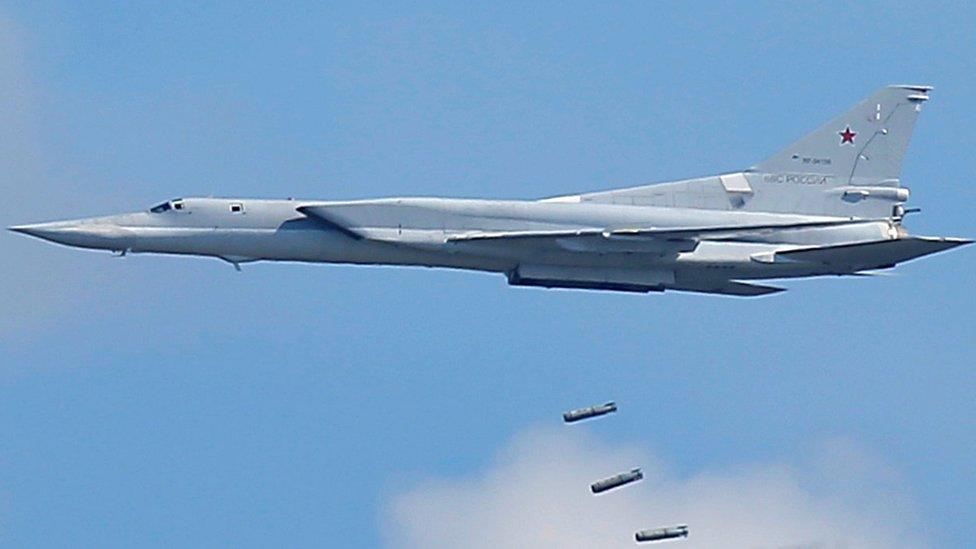Kaliningrad: New Russian missile deployment angers Nato
- Published
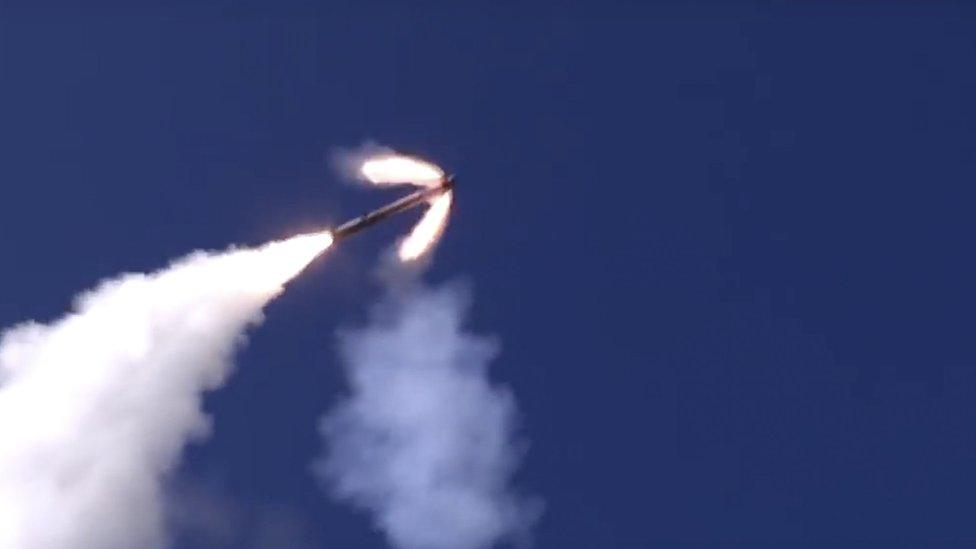
Russia has used the Bastion missile launchers in Syria
Nato has accused Russia of "aggressive military posturing" following reports that it has deployed anti-ship missiles in its westernmost Baltic region.
Russia's Interfax news agency said on Monday that Bastion missile-launchers had been sent to Kaliningrad.
In a statement to the Associated Press, Nato said the move "does not help to lower tensions or restore predictability to our relations".
The Kremlin has accused Nato of stoking tensions by expanding eastwards.
Kaliningrad is a Russian exclave sandwiched between Poland and Lithuania.
Baltic warning over Russian move on Nato
Missile deployment in Kaliningrad ups the stakes for Nato
In October, Russia sent nuclear-capable Iskander missiles to Kaliningrad, a move Poland described as of the "highest concern".
Russia said the deployment was part of military exercises and had happened before.

Russian military build-up in Kaliningrad
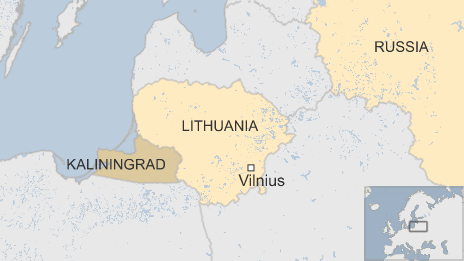
The Russian exclave of Kaliningrad represents an important military outpost between Poland and Lithuania with its coastline on the Baltic Sea.
The accumulation of radars and air defence systems, as well as coastal anti-shipping missiles, all form part of Moscow's developing "anti-access and area denial strategy", which in essence seeks to push Nato forces away from Russia and to make it very difficult to reinforce Nato members in the Baltic region in the event of a crisis.
Strengthened under comprehensive reform of Russian armed forces announced in 2008. From 2008-2014 saw significant increases in personnel in missile, naval infantry, rifle and artillery brigades, in some cases doubled
From 2012, deployment of new S-400 long-range air defence system (Nato name: SA-21 Growler)
From 2012, deployment of Iskander-M short-range, nuclear-capable ballistic missiles. New deployment announced in October 2016
October 2016: Two Buyan-class corvettes assigned to Baltic Fleet, armed with nuclear-capable Kalibr cruise missiles (Nato name: Sizzler)
Coastal defences currently being strengthened with Bal land-based anti-ship missile system and Bastion mobile anti-ship defence system

However, in a separate statement on Monday, the RIA news agency quoted Russian defence committee chairman Viktor Ozerov as saying Iskanders and S-400 surface-to-air missiles were deployed in Kaliningrad to counter a planned US missile defence shield in eastern Europe.
The Bastion system fires Oniks cruise missiles, which have a range of up to 280 miles (450km). Russia has already used them in the Syrian civil war where it is supporting President Bashar al-Assad.
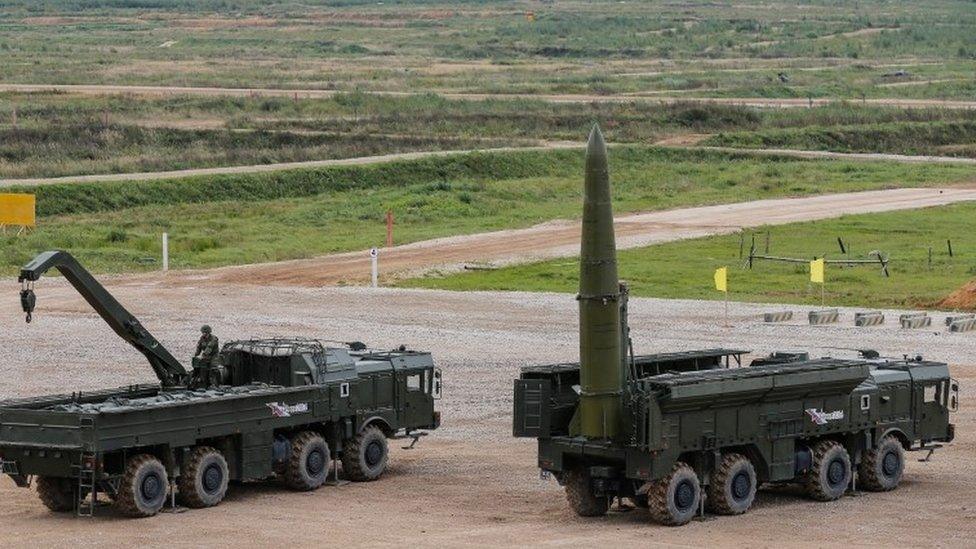
The deployment of the Iskander system in Kaliningrad has alarmed Poland
On Tuesday, Nato urged greater transparency on military activities "to avoid incidents and the risk of misunderstandings".
US state department spokesman John Kirby also called the latest Russian moves "destabilising to European security".

Kaliningrad facts
Koenigsberg, as the city of Kaliningrad was once known, was founded by Teutonic knights in the 13th Century. It was once the capital of Prussia
Annexed from Germany after WWII. Germans fled or were expelled
Is more than 300km away from Russia, which can only be reached through an EU country
It houses the Russian Baltic Fleet and is the country's only ice-free European port
The philosopher Immanuel Kant spent all his life in the city and died there in 1804

"Russia has made threats to move its Iskander missiles to Kaliningrad for the past decade in response to a variety of developments in Europe, none of which demand such a military response," he said.
"We call on Russia to refrain from words or deeds that are inconsistent with the goal of promoting security and stability."
His comments brought a stinging rebuke from the Russian defence ministry, which said that "all recent threats to European security" were a consequence of US military policy.
- Published11 August 2016
- Published5 October 2016

- Published12 August 2016
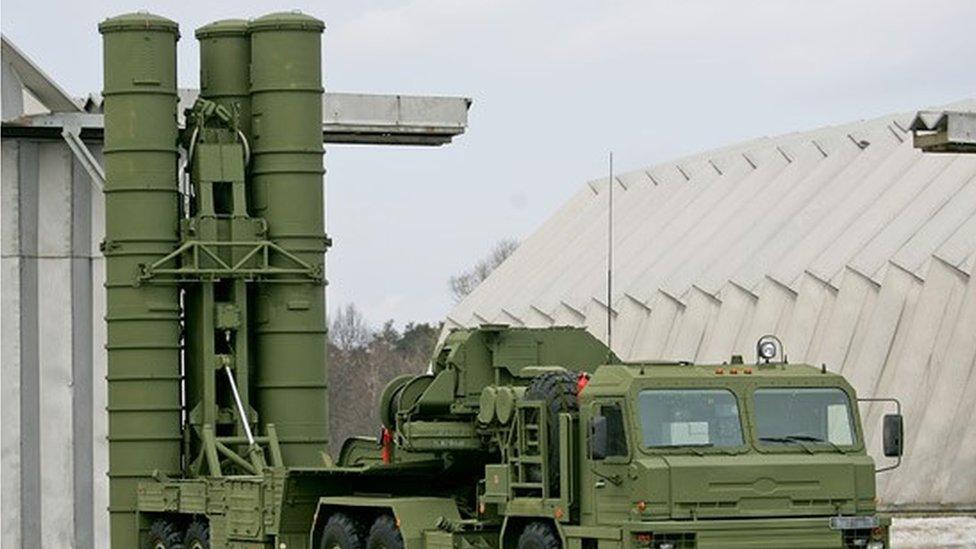
- Published6 October 2016
